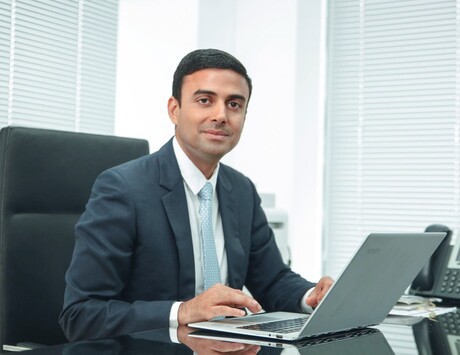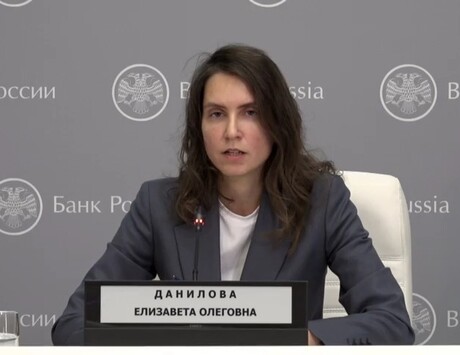When Russia’s richest woman, Yelena Baturina, was struggling to pay down more than $870m in debt during last year’s economic crisis, the wife of the former Moscow mayor managed to extricate her construction empire with a surprising deal.
Complete paralysis in the real estate market was forcing most other Moscow construction tycoons to hand over stakes in their debt-stricken companies to state banks or Kremlin- friendly businessmen. But Ms Baturina’s business was saved by finding an obscure company to buy 58 hectares of land just outside Moscow at a price that some experts say was well above what it would have commanded in boom times, raising Rbs13bn ($416m) to help pay off her debts.
“There were no deals happening in the market then, apart from a few for land outside Moscow. But all the prices were really depressed,” said one senior Moscow real estate executive, speaking on condition of anonymity. “This one, however, seems to be priced at about six times more than it would have been worth at the top of the market. It was astonishing.”
Today that deal is coming under increasing scrutiny following the acrimonious ousting of Ms Baturina’s husband, Yury Luzhkov, who as mayor of Moscow for the past 18 years presided over the city’s construction boom, parcelling out building permits and tenders at the same time as Ms Baturina’s Inteko business empire became the city’s biggest construction group.
As the Kremlin and Moscow embark on a political transition, how Ms Baturina’s business empire is treated is emerging as a key test of a pledge by Dmitry Medvedev, Russian president, to “modernise” and boost competition in the economy.
A former factory worker who rose to build a fortune estimated by Forbes magazine at $2.9bn, Ms Baturina is seen by many as an example of the hold Mr Luzhkov and those around him have held over the capital’s economy.
The land sale of June 25 2009 is attracting attention because Rbs13bn in financing for the deal arrived at the company from the Bank of Moscowjust three weeks before, on June 3, the same day as the Moscow city parliament approved a Rbs15bn budget transfer to boost the municipal bank’s capital.
Investigators from Russia’s interior ministry are examining whether the city budget funds were in fact aimed at helping refinance Ms Baturina’s debts, according to a copy of the investigation obtained by the Financial Times which was confirmed as genuine by two people familiar with it.
An initial probe by the interior ministry conducted before Mr Luzhkov’s ousting found there were no grounds to launch a criminal investigation. But the Russian prosecutors’ office has since ordered the interior ministry to take another look at the case, two people familiar with the situation say.
The prosecutors’ office initially confirmed the investigation, but said it could not comment further because the probe was ongoing. It later retracted that statement. However, the Moscow interior ministry’s economic crime department said it could not comment because the probe was ongoing.
Both Mr Luzhkov and Ms Baturina have denied any wrongdoing in connection with the deal. “There have been a huge number of probes into this. You say the prosecutors are probing now but it would be correct to say there have been many probes, but they have ended with no claims,” Mr Luzhkov told the Financial Times. Ms Baturina declined requests for comment.
For its part, Inteko says the probe is illogical because the government’s capital injection into Bank of Moscow came after the company had already paid down its loans and sold the land. The actual capital injection was transferred by the city in the first two weeks of July.
What happens now with the investigation could determine whether Moscow’s new mayor, Sergei Sobyanin, former chief of staff to Vladimir Putin, prime minister, is able to transform the city’s construction sector. But some critics also question whether the investigations are less about the pursuit of justice than about an attempt to carve-up Ms Baturina’s business empire.
“This can’t be called a battle against corruption,” said Nikolai Petrov, of the Moscow Carnegie Centre. “When the political alignment changes, the sharks always move in and try to lower the price.”
Ms Baturina insists her empire is not for sale and Mr Luzhkov has said the corruption allegations are part of an attempt by Kremlin-linked businessmen to seize the company. Despite that, Inteko’s first public sale was disclosed last week: it said last Thursday that it was selling its 50 per cent stake in a development in the Moscow City business complex to a Moscow steel baron and another real estate magnate.
But other executives in the construction sector say the public scrutiny into the rapid growth of Ms Baturina’s empire is long overdue. “The extraordinary thing for me is that this is only becoming an issue now,” said one executive.
Analysts say it is impossible to pinpoint exactly the share of the Moscow property market held by Inteko, because not all of the development projects are held directly by the company. More than a quarter of Moscow city decrees have also been classified, making it impossible to view all tenders and deals .
Such deals are not supposed to be classified in Russia. Last month Alexei Kudrin, the country’s finance minister, cited this as one example of the lack of transparency plaguing the Moscow city government.
Boris Nemtsov, an opposition politician, first produced a year ago a dossier listing a number of dealings between Inteko and the mayor’s office that he claims are examples of corruption and documenting dozens of deals which he claims may have benefited Ms Baturina. Inteko says Mr Nemtsov’s report contains “a huge quantity of lies, mistakes and manipulation of facts” and that there are “no examples” of the company winning tenders uncompetitively.
Mr Luzhkov and Ms Baturina have also sued Mr Nemtsov for defamation, winning $17,000 in damages for parts of the report but failing to get most of it retracted. A Moscow court recently threw out Ms Baturina’s bid to win retraction of more of the report.
In the meantime, interior ministry investigators are focusing on Inteko’s sale of the 58 hectares of land. The company that bought the land, the little-known Premier Estate, was established with a charter capital of only Rbs10,000 less than three months before it received the Rbs13bn credit from the Bank of Moscow, according to the interior ministry investigation and public registration documents.
Premier Estate was founded by another company, Kuznetsky Most Development (KMD), whose president, Boris Shemyakin, said it had created the company for a client whom he would not name. The company has since been sold on. According to the interior ministry investigation, the land is now owned by a UK-based private equity group, Argo Capital Partners Fund, which acquired the plot at the end of last year. Argo declined to comment. KMD said the land was bought at a market price and that it was still involved in the housing project as a “fee-developer”. To date the land remains undeveloped.
The correlation in timing between the agreement for the capital injection and the granting of the loan to Premier Estate remains the focus of questions. The loan was granted by the Bank of Moscow on June 3 last year, on the same day as the city Duma approved the necessary budget amendments to allow the government to take part in the Bank of Moscow capital boost, according to the investigation.
In a telephone interview from Vienna, where he now spends a lot of time, Mr Luzhkov said he did not remember “what coincided and what did not”. “But these were absolutely different operations,” he said. “I can officially say that the Bank of Moscow is an independent banking structure and independently conducts all its operations. There was no pressure or orders from the government. And the government does not have official or unofficial methods of exerting pressure on the bank.”
The Bank of Moscow says the city’s participation in the capital injection was not connected to the loan: it needed the bank’s shareholders to boost its capital in order to win access to federal state funding during the crisis, but it was still able to extend “thousands” of credits without raising additional financing. It said the bank was interested in lending to the development project because it believed it would be successful.
But the city government, as the holder of a 46 per cent stake in the bank, played a role in approving the project. The Moscow Duma’s approval for the capital injection was sent to the head of the city government’s finance department, Yury Korostelyov, who also sits on the Bank of Moscow board. A spokesman for Mr Korostelyov said the finance chief had, in the latter role, voted to approve the loan to Premier Estate and done so according to orders received from the head of the city property department. The head of the Moscow property department could not be reached for comment. He was removed from his post by the new mayor.
Whether or not there was a link between the approval for the capital injection and the extension of the loan to buy the land may be impossible to prove, according to banking experts, but the deal could still have consequences for the Bank of Moscow, as questions remain over the present value of the land used as collateral for the loan.
Broader concerns over loans extended to other projects linked to the former Luzhkov government are also one reason why rating agencies have been downgrading their outlooks for the Bank of Moscow since Mr Luzhkov’s ousting. A move to place the bank on watch for a possible downgrade reflected “significant and increased exposure to companies which are closely associated with the outgoing city administration or which have up until now benefited from the support of the city and/or whose viability may depend at least to some extent on the city’s backing,” Fitch Ratings said.
The state is already moving in. On Wednesday Finance Minister Kudrin said VTB, the state bank, could buy out the Moscow city government’s 46 per cent stake in the bank.



